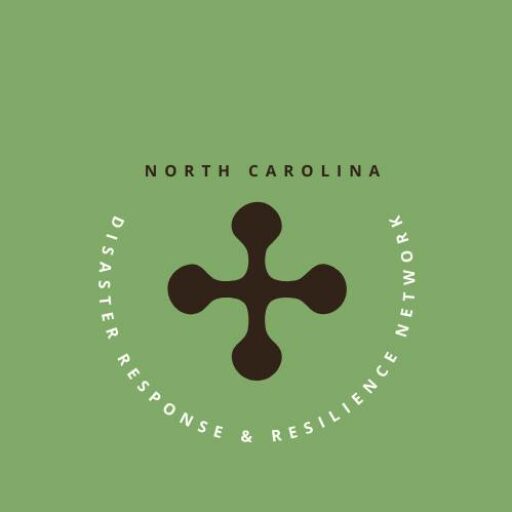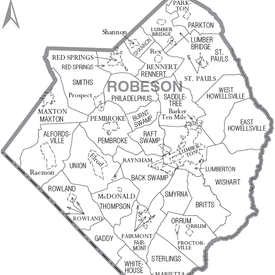The mission of RCCSD’s is to build a multiracial base of power to achieve just disaster recovery, climate justice, and a just economy in Robeson County, NC Proposal Description Robeson County, NC, the most racially diverse, rural county in the U.S., has been devastated by both climate disaster (i.e. hurricanes and droughts) and climate disrupting industrial development including a new and expanding partnership between industrial agriculture and the fossil fuel industry, particularly carbon-based, natural gas.
RCCSD was formed by a multiracial team of organizers in 2018 to build an inclusive base of power to challenge the cumulative and disproportionate impact of climate disaster, climate injustice, and degenerating economy, primarily in Robeson County’s communities of color. Robeson County is 38% Native American, 25% African American, 25% European American, and 12% Latino. RCCSD is utilizing community-based, issue-based, and movement-based organizing strategies to develop a broad base of countywide power to influence and change the development policies and practices in the disaster recovery, fossil fuel, and industrial agriculture industries.
Action Plan
(1) Organize a broad-based response to the growing COV-19 crisis in Robeson County and partner with statewide organizations to create a grassroots, virtual Survival School to educate, train, and support primarily persons and communities of color on how to survive the crisis.
(2) Initiate disaster community organizing in low-income communities of color impacted by Hurricane Matthew and Hurricane who are experiencing climate gentrification and the forced sell out of homes and the resulting loss of community, jobs, faith communities, schools, and potentially, voting districts. The goal is to engage community residents as equal partners in revisioning and redeveloping their communities.
3) Organize and halt the construction of the Atlantic Coast Pipeline and its proposed infrastructure, including the LNG Plant under construction by PNG and Duke Energy. Up to eleven existing, planned, and potential natural gas projects are projected in an 8-mile radius in the middle of the Native American and African American communities in Western Robeson County. The organizing community in Robeson County is overwhelmed with few financial resources. The goal is to garner resources and build expanded influence/
(4) Leverage financial and legal resources and assistance to challenge the massive expansion of fossil fuel and biofuel projects in Robeson County and Eastern NC. An entire cadre of environmental lawyers are needed.
(5) Organize, educate, and advocate for regenerative and sustainable development in Robeson County, challenging and changing the massive rise of dirty industry from both the energy and agricultural sectors.
(6) Begin strategic planning on creating a major organizing training center in Robeson County to educate, train, and support a new cadre of young and middle aged, grassroots organizers and leaders of color in Robeson County and Southeastern NC.
RCCSD Team The RCCSD is made up of seasoned and emerging grassroots organizers and leaders, primarily Native and African American, and statewide partners. The primary Leadership Team is made up of: (1) Sallie McLean, Lead African American Community Organizer and former Mayor of Maxton; (2) Jeff Currie, Lead Native American Community Organizer and Lumbee RiverKeeper; (3) Mac Legerton, Lead European American Organizer; and (4) Anita Cunningham, African American Community Organizer. Other members of the Cooperative Team include: (1) Donna Chavis, Senior Fossil Fuels Organizer with Friends of the Earth and Director, Red Tailed Hawk Collaborative; (2) Dani Moore, Staff Member, NC Justice Center; and (3) Joshua Vincent, Southern Vision Alliance (SVA), RCCSD’s program partner and fiscal sponsor.
The RCCSD Team also includes its growing, geographic and issue-based constituencies engaged in various organizing efforts and program priorities. This includes disaster survivors in impacted communities facing involuntary buyouts, landowners threatened with eminent domain, pipelines, and industrial chicken and hog feeding operations, small farmers threatened by drought, and collaborating partners in the nonprofit sector.
RCCSD leaders are also very engaged in state and national partnerships and coalitions in the areas of environmental justice, climate justice, disaster recovery, racial justice, food and farm justice, legal justice, and rural justice.
Areas include:
✓ Advocacy
✓ Art
✓ Base Building
✓ Capacity Building
✓Org Development
✓ Coalition Building
✓ Communications and Media
✓ Convening
✓ Culture
✓ Direct Action
✓ Education
✓ Healing
✓ Restorative Justice
✓ Leadership Development
✓ Movement Building
✓ Organizing
✓ Policy
✓ Research
✓ Social Enterprise
✓ Voter Registration
Interests Areas
✓ Climate / Disaster Response and Recovery Criminal Justice Democracy & Civic Engagement Economic Justice Education ✓ Environmental Justice / Climate Justice / Nature
✓ Equitable Development Food Justice Gender & Reproductive Justice Healthcare / Wellness / Public Health Housing / Homelessness Human Rights / Civil Rights & Liberties Immigration LGBTQ+ Racial Justice Transportation / Utilities / Public Infrastructure
Because of its high level of poverty and diverse populations, Eastern NC is most likely the most racially diverse and poorest rural region in the United States. Eastern NC is the home and territory of four of the six state recognized Native American tribes in NC, including the Lumbee whose ancestral territory is Robeson County and surrounding areas. The region is also the historic Black Belt in NC, home to the massive slave plantations of the 1700 and 1899’s. Agriculture is the largest industry in Eastern NC and is also home to the largest farmworker and Latinx population.
RCCSD was founded by two long-term, organizers and staff members of the Center for Community Action (CCA) in Robeson County. RCCSD was founded by Mac Legerton, CCA Co-founder former Director and Sallie McLean, long-term CCA organizer in partnership with a multiracial cadre of local advocates in partnership with SVA and the NC Justice Center. Both Mac and Sallie retired from CCA to pursue more concentrated organizing in the fields of climate disaster and climate justice that have become new and major challenges facing Robeson County and all of Eastern N.C. Donna Chavis, CCA’s Co-founder and member of the Lumbee tribe, went on to develop the Red-Tailed Hawk Collaborative and now works as Senior Fossil Fuels Campaigner for Friends of the Earth and RCCSD partner. Jeff Currie, Lumbee, has recently become the first Lumbee RiverKeeper and returned home to assist with the organizing work. He and others engaged in RCCSD represent a new generation of social and environmental justice organizers and leaders in Robeson County.
In 2018-2019, organizing focused on the establishment of the Robeson County Affordable Housing Coalition to take on issues of climate gentrification and the loss of affordable housing due to devastation of Hurricane Matthew (2016) and Hurricane Florence (2018) and the displacement of predominantly low-income African American and Latinx families from over 20 trailer parks by Time Out Communities.
At the same time, the impact of the proposed Atlantic Coast Pipeline and all its related natural gas projects in the Native American and African American community overwhelmed the organizing community that lacked the financial and nonfinancial resources to challenge them. This included multiple pipelines, proposed and projected, new gas infrastructure, unregulated industrial chicken operations, massive deforestation, and a new alignment of Duke Energy with industrial agriculture in the production of biofuels I.e. both biogas and biomass). RCCSD was formed to join all of these organizing efforts in a consolidated, cooperative, and concentrated way on the county level.
The organizing and power building work of RCCSD in communities of color focuses on the five “E’s” of participatory, regenerative, and sustainable development: economy, environment, equity, energy, and education.
The goal of RCCSD is to build a broad-based, multiracial cooperative and collective that joins individuals, grassroots organizations, and communities to promote just disaster recovery, climate justice, environmental justice, energy justice, equitable development and increased access to organizing resources in Robeson County and Eastern NC in partnership with statewide and national organizations. RCCSD will organize a major public education and advocacy campaign based on a Sustainable Development Agenda and Plan which challenges the advancing pattern of underdevelopment and dirty industry in Robeson County and Eastern NC. For example, fracked natural gas is now the #1 contributor to climate change and is not clean, green, and no longer cheaper than renewable energy sources.
RCCSD will release an annual sustainable development, social and environmental justice policy and advocacy agenda and report. It will be delivered to and discussed with elected officials, county boards, and community leaders in decision-making positions related to economic and community development. This includes work with the Lumbee Tribal Council, particularly its new Natural Resources Committee now under consideration. RCCSD-related needs and issues include food justice, education justice, and legal justice, including advancing re-entry and diversion programs that prevent and lower the massive incarceration rates and recidivism within the offender and former offender populations of color.
Mac Legerton and Sallie McLean serve as RCCSD’s Co-Directors. Mac is the primary contact for grant-related communications. Initial communication through email and text is preferred, followed by phone conversations. Both Mac and Sallie are biased toward direct verbal communication and deliberations and peer-to-peer relationships with funders as partners in its social justice work. Contact information is:
Mac Legerton, mac.legerton@gmail.com, 910-736-5573
Sallie McLean, mcleansallie@yahoo.com, 910-587-3388

